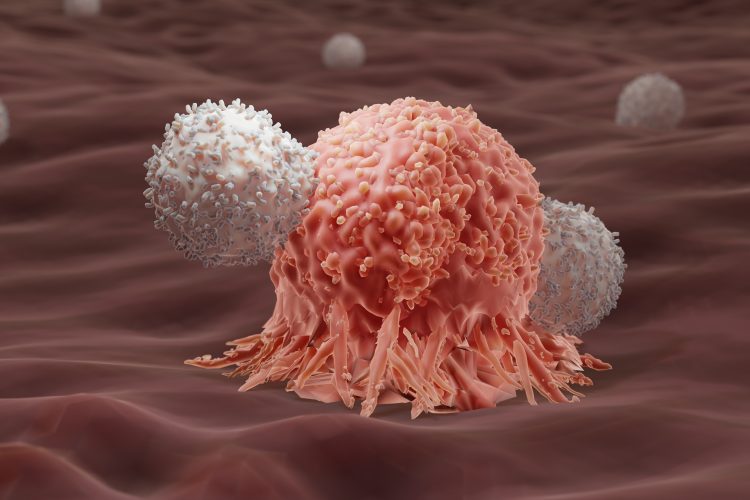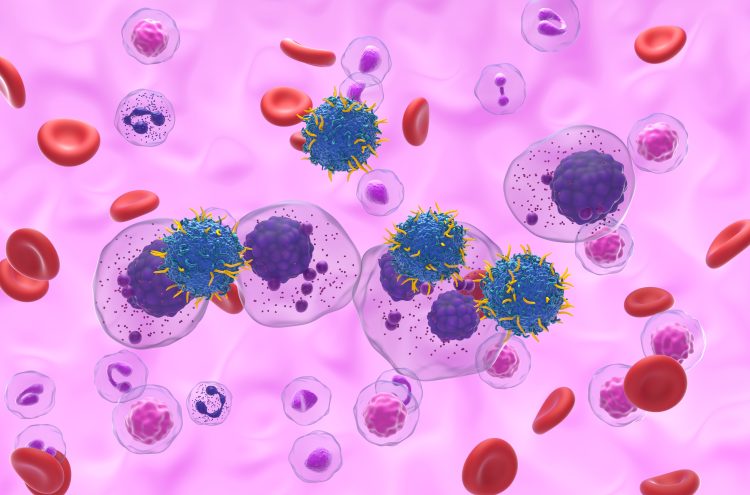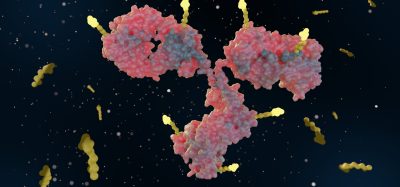CAR T’s biggest hurdle: solving the toxicity problem
Posted: 11 September 2025 | Drug Target Review | No comments yet
CAR T therapies are saving lives, but toxicities such as CRS and ICANS remain a major barrier. What will it take to overcome them?


Chimeric antigen receptor (CAR) T-cell therapy is changing lives for patients with hard-to-treat cancers. By genetically reprogramming a patient’s own T-cells to recognise and destroy tumours, CAR T has redefined the possibilities of modern oncology and is now being studied in other disease areas. Yet this remarkable progress comes with a challenge: the management of serious toxicities such as Cytokine Release Syndrome (CRS) and Immune Effector Cell-Associated Neurotoxicity Syndrome (ICANS).
At the centre of efforts to solve this challenge is Teresa Whalen, Registered Pharmacist and Chief Executive Officer of CytoAgents. Drawing on her background as both a pharmacist and a senior executive at organisations including Siemens Medical, McKesson and UPMC, Whalen has dedicated her career to delivering life-changing healthcare products to patients in need. Today, she is leading CytoAgents with a clear mission: to develop a universal treatment for CRS. Its lead programme also addresses ICANS, tackling two of the most serious complications linked to CAR T. The goal is simple but ambitious – to make these therapies safer and available to more patients.
“Some of what I love about my role is being in a constant state of pursuing ways to do things better and faster, making impactful decisions and fostering innovation.”
Read on as Teresa shares why toxicity management is the biggest obstacle holding CAR T therapies back, why moving into outpatient settings is essential, and how CytoAgents’ oral small molecule CTO1681 could be the breakthrough that enables these therapies to deliver on their promise.
The FDA’s REMS decision: progress, but not a solution
The US Food and Drug Administration (FDA) recently removed Risk Evaluation and Mitigation Strategy (REMS) requirements from six CAR T therapies, a decision widely seen as a landmark moment. REMS is a safety programme the FDA uses when a medicine carries serious risks, designed to make sure its benefits outweigh potential harms. For CAR T, REMS meant hospitals had to be specially certified and have immediate access to the rescue drug tocilizumab before giving treatment. Lifting these rules makes it easier for more centres to offer CAR T.
From the physician and patients’ perspectives the risk of toxicity has not changed and the importance of having an oral breakthrough tablet readily and widely available continues to be urgently needed.
“From the physician and patients’ perspectives the risk of toxicity has not changed and the importance of having an oral breakthrough tablet readily and widely available continues to be urgently needed.”
CRS occurs in up to 95 percent of cancer patients treated with CAR T, and ICANS in around half. CRS is an excessive inflammatory reaction triggered by the immune system going into overdrive, while ICANS involves neurological side effects such as confusion, seizures and, in severe cases, coma. Both toxicities can be life-threatening. Managing them places an enormous strain on healthcare systems and remains one of the greatest obstacles to scaling these therapies.


Chimeric Antigen Receptor (CAR) T-cell therapy involves engineering a patient’s T cells with synthetic receptors to recognise and eliminate tumour cells with high specificity and potency. Image credit: Nemes Laszlo/Shutterstock
What the industry is missing about CRS and ICANS
For Teresa, a key challenge is that the magnitude of these toxicities is often underestimated outside of clinical practice.
In my opinion there is a lack of recognition of just how significant a problem these toxicities are and how critical it is to address them.
“In my opinion there is a lack of recognition of just how significant a problem these toxicities are and how critical it is to address them.”
Patients experiencing CRS typically require 12–14 days in hospital. That is not just disruptive to their lives, it creates a systemic burden, tying up specialist beds and resources in already stretched healthcare systems.
Until these toxicities are reliably managed, Teresa argues, CAR T therapies cannot be considered truly scalable, nor can they achieve their full clinical potential.
CytoAgents’ answer: CTO1681
To meet this need, CytoAgents is developing CTO1681, an oral small molecule immune modulator designed specifically to prevent CRS and ICANS. Unlike existing rescue therapies that intervene once toxicity has occurred, CTO1681 is preventative in nature.
Currently in Phase Ib/IIa clinical trials in lymphoma patients receiving CAR T-cell therapy, CTO1681 is being evaluated for safety, tolerability and efficacy across multiple US sites.
Teresa sees CTO1681 as the missing piece that could allow CAR T to reach its full potential.
“By effectively preventing these life-threatening complications experienced by oncology patients treated with CAR T-Cell Therapy, CytoAgents is working to enable safer, widescale adoption of these breakthrough therapies.”
Outpatient CAR T: the key to scaling
Today, CAR T therapies are primarily delivered in large academic medical centres equipped to handle acute toxicities. But this model is not sustainable. Patients often require extended hospitalisation, which creates bottlenecks and limits access.
“Through better management of toxicity, we will move these patients from the inpatient academic medical centre setting into the outpatient and then into the community setting. This approach is how the full potential of these therapies will be unlocked.”
Outpatient delivery would dramatically expand capacity, reduce costs and make these therapies more widely accessible to patients globally. But to achieve this shift, a preventative solution like CTO1681 is essential.
Misconceptions in the investment community
While clinicians working on the front lines of CAR T understand the toll that CRS and ICANS take, Teresa notes that investors do not always share the same urgency.
“What we are seeing is an enormous disconnect between the medical community/clinicians who see and understand the impact they have and the investment community who do not recognise how significant and pervasive a problem they are.”
For Teresa, changing this perception is crucial. Without investment in toxicity management, the scalability of CAR T – across oncology, autoimmune and inflammatory diseases – will remain compromised.
Beyond oncology
CAR T therapies are no longer confined to oncology. With over 400 CAR T products currently in development, many are being tested in autoimmune and inflammatory diseases. That expansion only intensifies the urgency for toxicity management.
The mortality, economic burden, and strain CRS has on our overall healthcare system is devastating.
“The mortality, economic burden, and strain CRS has on our overall healthcare system is devastating. The need to address and manage these toxicities is urgent and will only become more critical as the applications of CAR T therapies evolve beyond oncology.”
A scalable, preventative solution like CTO1681 could therefore become not just beneficial, but mission-critical to the future of cell therapies.
Staying motivated in a challenging space
The path of drug development is rarely straightforward, and developing a first-in-class preventative therapy comes with hurdles. But Teresa remains energised by the mission.
“I firmly believe CTO1681 has the potential to save lives globally. This gives me a strong sense of purpose and is a constant motivator.”
Just as importantly, she draws inspiration from her team – a multidisciplinary group spanning clinicians, scientists, regulatory experts, business strategists and more.
“Together we have created a culture of collaboration, excellence, and urgency.”
CTO1681 advancing through clinical trials
The promise of CAR T therapies is undeniable. They are already curing patients at rates once thought impossible, and their potential beyond oncology is vast. But their future depends on solving the problem of toxicity.
The work on CTO1681 also underlines how vital early drug discovery is in anticipating safety challenges. By starting with a small molecule approach aimed at modulating the immune response, CytoAgents shows how drug discovery can be used not only to create new therapies, but also to make existing breakthroughs like CAR T safer and more widely available.
Meet the expert – Teresa Whalen, Registered Pharmacist and Chief Executive Officer of CytoAgents


Teresa brings over 20 years of experience in the healthcare industry as a biotech innovator, healthcare technology leader, hospital board trustee, life sciences investor, and clinical pharmacist. She has built a successful track record of guiding life-changing healthcare products from concept to market.
As CEO of CytoAgents, Teresa leads a team of world-renowned clinical drug development experts and scientific advisory board members who are driving groundbreaking treatments for life-threatening symptoms of Cytokine Release Syndrome (CRS), a dangerous overreaction of the immune system that causes systemic inflammation.
Related topics
Cell Therapy, Chimeric Antigen Receptors (CARs), Cytokines, Immuno-oncology, Immuno-oncology therapeutics, Immunotherapy, Oncology
Related conditions
Cancer, Cytokine-release syndrome (CRS), Immune Effector Cell-Associated Neurotoxicity Syndrome (ICANS)
Related organisations
CytoAgents







